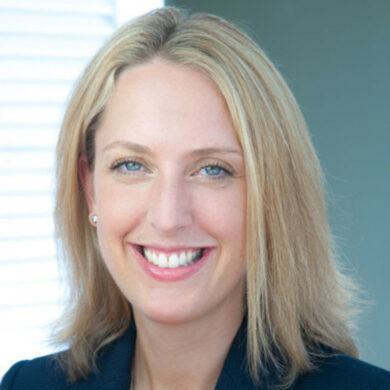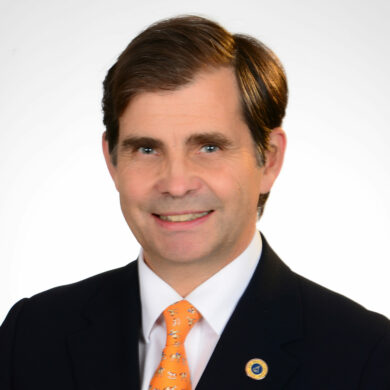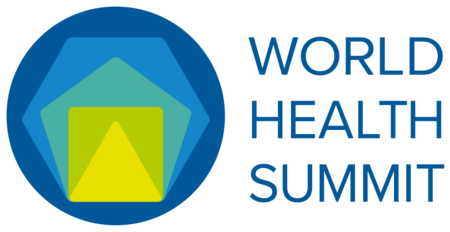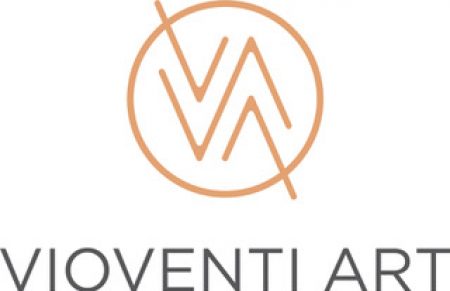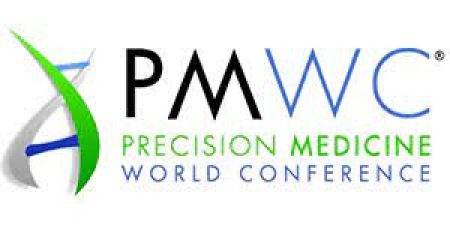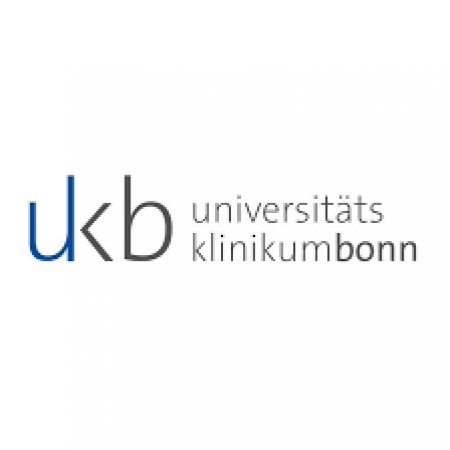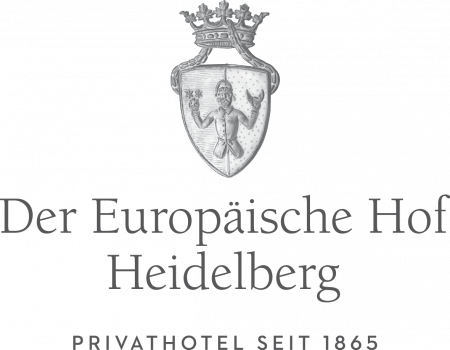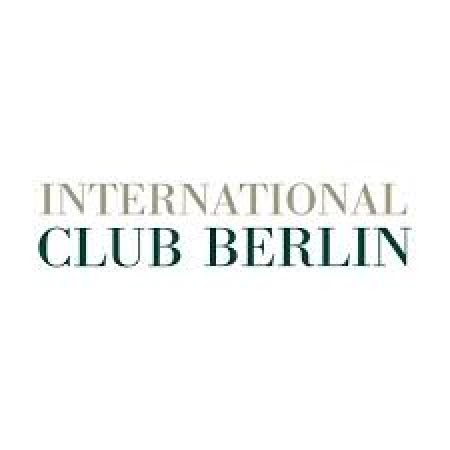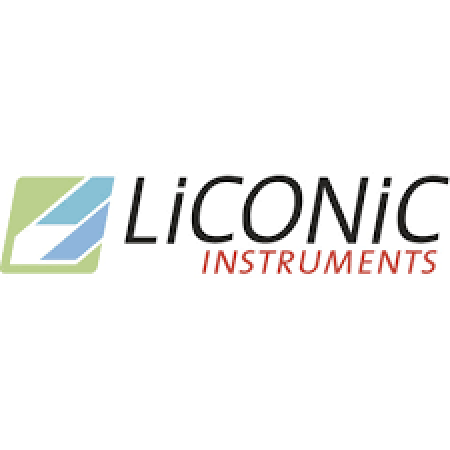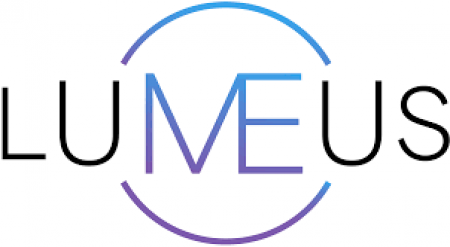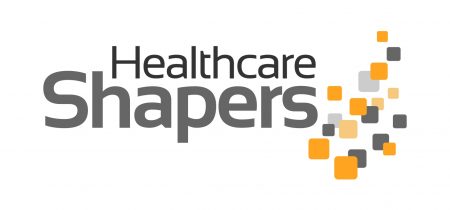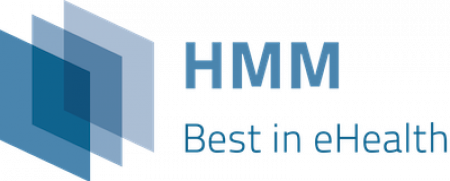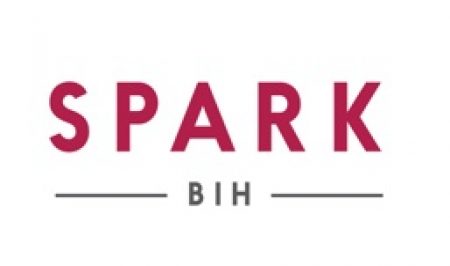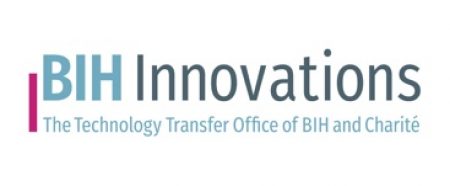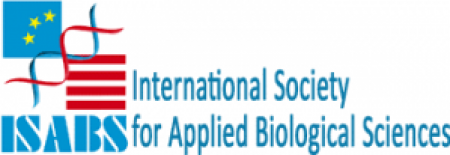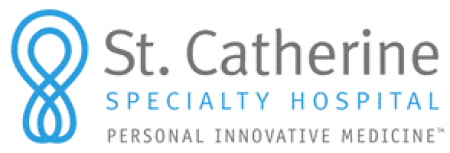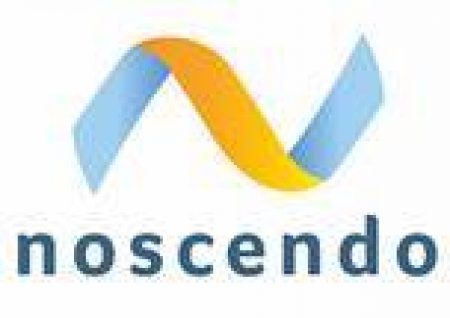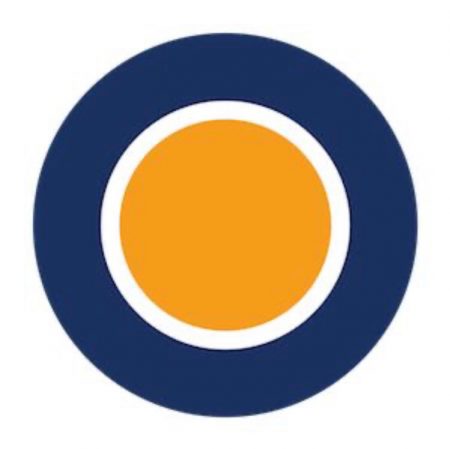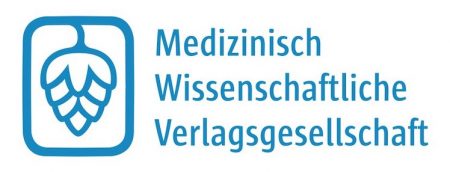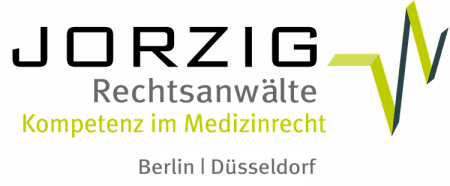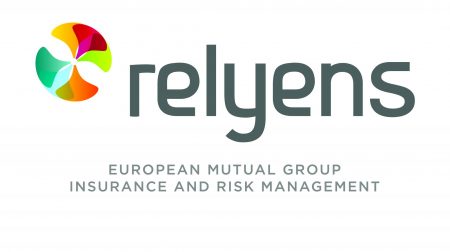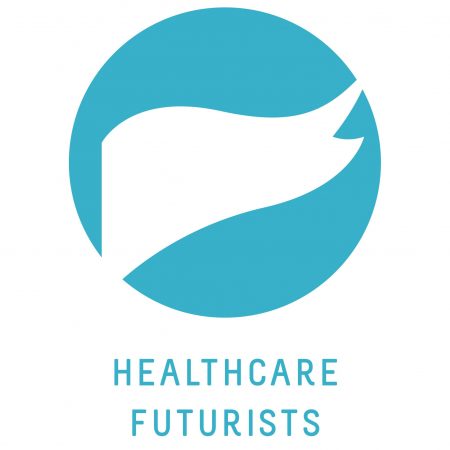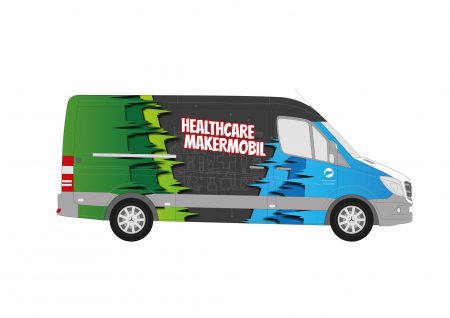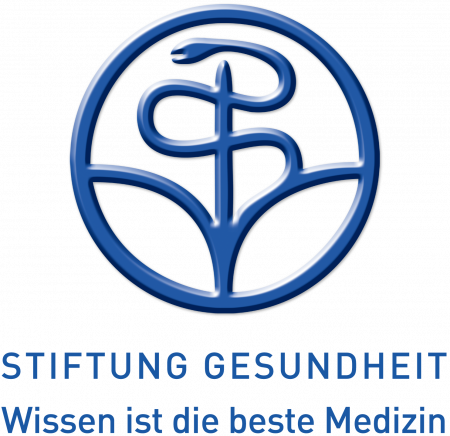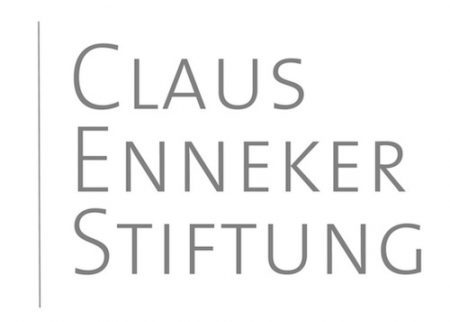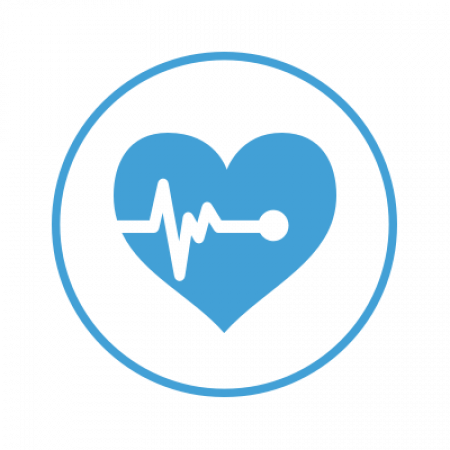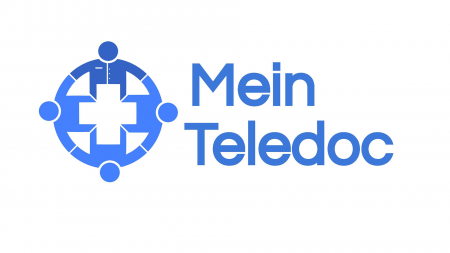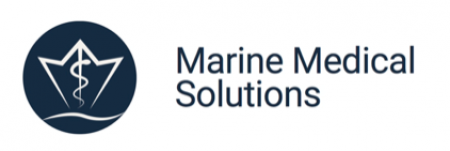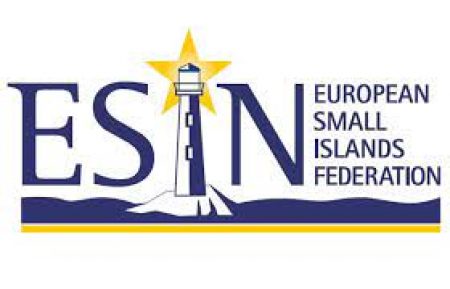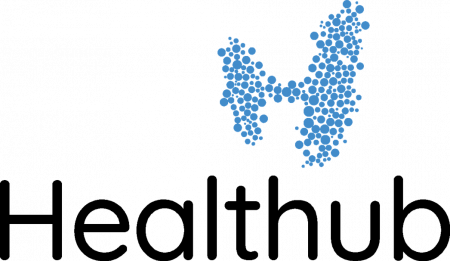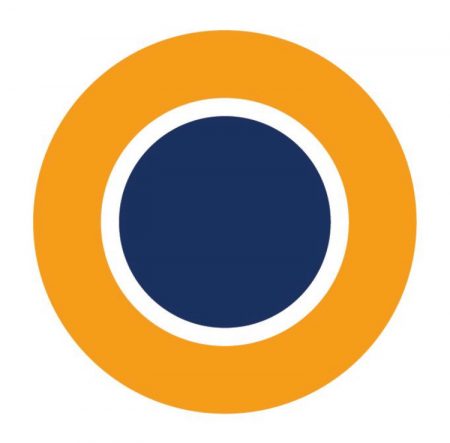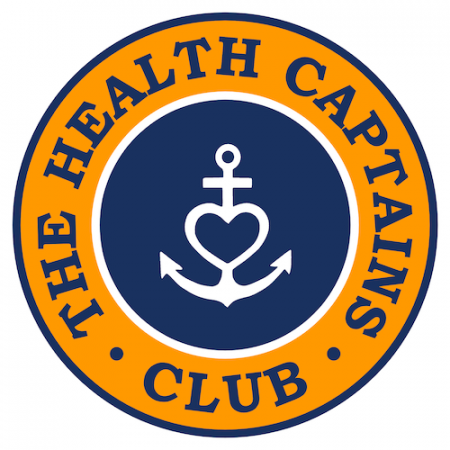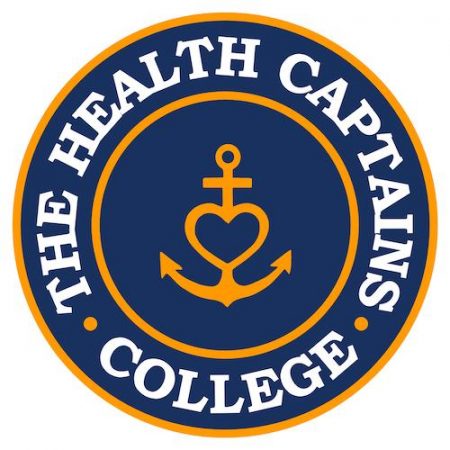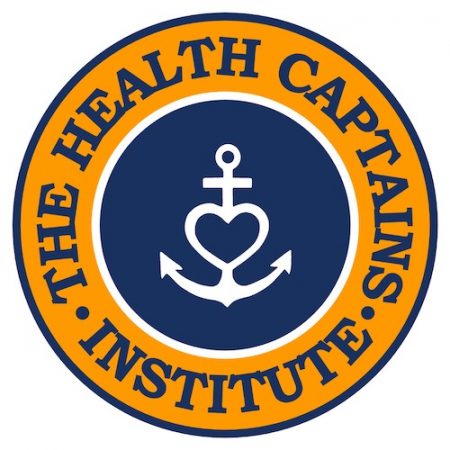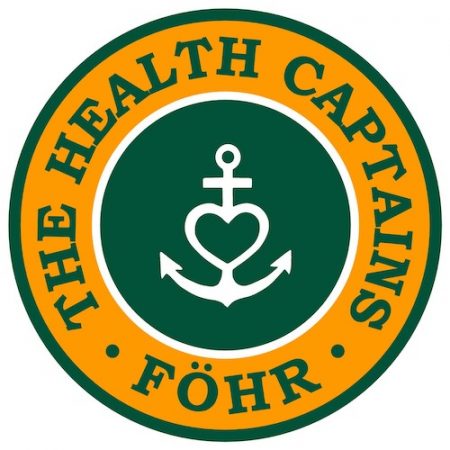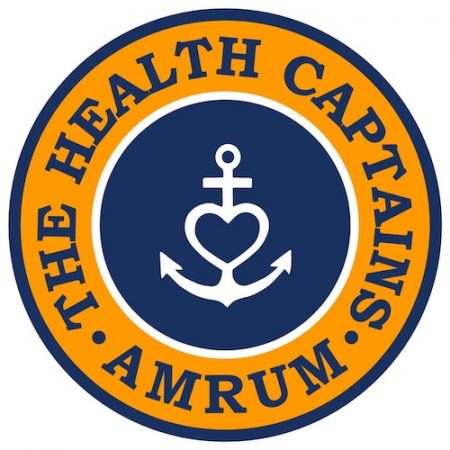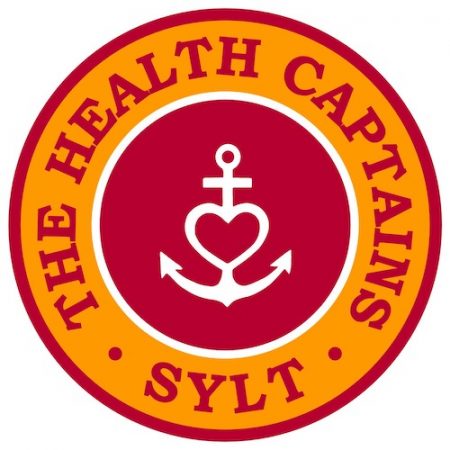
THE HEALTH CAPTAINS CLUB
TWIN CHAPTER ALLIANCE
BRIDGING TWO METROPOLIS TO SCALE AND ACCELERATE SUCCESS
To scale success stories, solutions, innovations and new technologies and to stop re-inventing the wheel again and again together towards sustainable Medicine and Health for the Transformation form “SickCare” towards “LifeCare” we connect >5 x towards > 50 x two international Metropolregions as one Twin-Chapter.
One THCC Twin-Chapter on-boards max. 150 Members / THCC Twin-Town = 2 x 150 Members = 300 Members / Twin-Chapter.
The Chapter Chairs of 2 are the Chapter-Leadership. 2 Chairs are representing the Twin-Chapter and are supported by 1 Co-Chair per Twin-Town. Together they are representing the Twin-Chapter towards the Cluster-Leadership, the Cluster-Community and the Media. . The Chairpersons report directly to the President`s Office..
The Chapter CORE of 5 is building the Chapter Strategy, Actionplans, White Papers, Policy Papers and other Publications. Some Twin-Chapters can expand towards Triplet-Chapters.
The Chapter THINK-TANK of 15 gives additional Input and Support building the Ecosystem of max. 2 x 150 HEALTH CAPTAINS together.
The Chapter BRAINPOOL of 50 is the next Level to create White Papers, Policy Papers.
The Chapter FORUMS of 150 are the Exchange Hubs to meet in Person for SYNAPTING.
The CORE of 5 is in the lead to get supported by a Chapter Think-Tank of 15 and a Chapter Brainpool of 50. Following the Neuroleadership-Experience every Twin-Chapter-Town consists of max. 150 Members to maintain sustainable relationships and to orchestrate Tipping-Points for success towards sustainable Medicine for sustainable Health.
Once a month all CORE-Team`s meets for 60 to max. 90min online to synchronize results and next-steps.
Once a quarter three CORE´s are running a THINK-TANK or BRAINPOOL (consist of three Chapter Think-Tanks) together to share results and to synchronize their action plans to exchange and scale success stories. Additionally every Twin-Chapter organizes together a TWIN-CHAPTER-FORUM once a Year.
TWIN CHAPTER FACTS & FIGURES
BENCHMARKING METROPOLIS HEALTH SCIENCES BUSINESS CLUSTERS
To get first Objectives towards Cluster Benchmarking Fact & Figures of the Twin-Chapters gives first indentications for the Performance Potential of every Metropol Health Sciences Business Cluster – we would like to measure some Basic Facts & Figures to inspire the bridging process of THCC Twin-Chapters:
- Universities & Academic Research Institutions
- University Medical Center
- Hospitals
- MedTech
- BioTech & Pharma
- InfoTech
- StartUp`s
- Investors
- Economic Data on the Health Industry in the Cluster Metropol Region
- Infrastructure: Technology Parks, new building projects, start-up support, Networks & Ecosystems
- Bridging the Cluster Management with their Key Topics into the THCC Twin-Chapter Brainpool
THE TWIN CHAPTER EVENTS
HEALTHApéros – HEALTHSalons- HEALTHForums
THERE WILL BE NO SUBSTITUTE FOR MEETING IN PERSON
Every Twin-Town of each Twin-Chapter organizes “HEALTHApéros” with Keynotes to exchange Success Stories and scaleable Solutions and “SALONS” with Healthy Longevity Roundtables empowered by multi-professional, intellectual and creative Mindset as in Person Health Captains Events and every Twin-Town can have max. 2 x 150 Members of Diversity to respect the Neuroleadership-System for sustainable Synapting created by THE HEALTH CAPTAINS CLUB (Dunbar Number 150, Tipping Point Number 150 and the Medici Effect).
The HEALTH CAPTAINS CLUB organizes “FORUMs of 150” like “The Berlin Forum” for the Berlin-New York-Chapter based on neuroleadership principles, recognizing that 150 is the cognitive limit (known as Dunbar’s Number) for maintaining meaningful social relationships. By keeping forums to this size, the Club aims to better synchronize actions, foster collaboration, and drive transformation—unlike large conferences with thousands of participants, which are less effective for these goals.
NEW YEAR RECEPTIONS
FEBRUARY 21th
All Twin-Chapters meet for their yearly action plan and program planing on February 21th in person or online by coming together for THE HEALTH CAPTAINS CLUB New Year Reception.
The THCC NYR is adopted to the yearly Founders Forum on Föhr Island during the hundreds of years old Tradition of the Biikefire always on February 21th with the focus on 360º Sustainability and the Convergence of sustainable Healthcare, Healthy Longevity, Blue Zone Community Care and One Health Life Care towards sustainable Medicine and Health. More @ HEALTHCAPTAINS.events
TWIN CHAPTER OVERVIEW
DACH – EUROPE – INTERNATIONAL
BRIDGING TWO METROPOLIS FOR MEDICINE 4.0 & CARE 4.0 FOR HEALTH 4.0 FROM >5 TO >50 TWIN-CHAPTER
DACH (2020-2025)
Hamburg (1): EU-US-Westcoast-Chapter (2022) – Berlin (2): B-NY-Chapter (2020) – München (3): Munich-Brussels-Chapter (2021) – Frankfurt a. M. (4): Frankfurt-Essen-Tel Aviv-Chapter (2023 F-TLV & 2025 F-E-TLV) – Düsseldorf (5): Düsseldorf-Tokyo-Chapter (2022) – Vienna (6): Vienna-Prague-Jerusalem-Chapter (2026) – Basel (7): Basel-Miami-Chapter (2025 – Bern included) – Zürich (8): Zürich-Stockholm-Chapter (2025) – Geneva (9): Geneva-Boston-Chapter (2025 – Lausanne included)
EUROPE (2026-2030)
Paris (10): Paris-Moscow-Chapter (2027) – London (11): London-Oxford-Cambridge (“Golden Triangle”, UK) – Copenhagen-Malmö (“Medicon-Valley”, DK/S) – Madrid (12): Madrid-Lisbon-Chapter (2026) – Rome (13): Rome-Cologne-Chapter (2026) – Athens (14): Athens-Beijing-Chapter – Amsterdam (15): Amsterdam-Manchester-Chapter – Dublin (16): Dublin-San José-Chapter – Helsinki (17): Helsinki–Riga-Chapter – Oslo (18): Oslo-Edinburgh-Chapter – Luxembourg (19): Luxembourg-Strasbourg-Chapter – Lichtenstein (20): Lichtenstein-Singapore-Chapter – Vilnius-Tallinn (21): Vilnius-Tallinn-Lübeck-Chapter – Budapest (22): Budapest-Valencia-Chapter – Warsaw (23): Warsaw–Bangalore-Chapter – Sofia (24): Sofia-Tbilisi-Chapter – Zagreb (25): Zagreb-Kraków-Chapter – Valleta (26): Valletta–Hong Kong-Chapter Barcelona (27): Barcelona–Marseille-Chapter – Lyon (28): Lyon–Maastricht–Liège–Aachen-Chapter – Bordeaux (29): Bordeaux-Montreal-Chapter – Milan (30): Milan-Chicago-Chapter – Rotterdam (31): Rotterdam-Toronto-Chapter (Leiden–Delft–Rotterdam (LDR-Triangle) – Toronto–Waterloo–Hamilton – Chapter) – Antwerp (32): Antwerp-Uppsala-Chapter – Ghent (33): Ghent-Toulouse-Chapter – Eindhoven (34): Eindhoven-Cape Town-Chapter
INTERNATIONAL (2028-2033)
Istanbul (35): Istanbul–Shanghai-Chapter (2028) – Middle East (36): Abu Dhabi – Dubai – Riyadh (MENA Mega-Triangle)-Singapore-Chapter – Saint Petersburg (37): Saint Petersburg-Houston-Chapter – Delhi (38): Delhi-Johannesburg-Chapter – Shanghai (39): Shanghai-Buenos Aires-Chapter – Sao Paolo (40): Sao Paolo-Kuala Lumpur-Chapter – Mexico City (41): Mexico City-Bangkok-Chapter – Cairo (42): Cairo-Atlanta-Chapter – Mumbai (43): Mumbai-Dallas-Chapter – Osaka (44): Osaka-Rio de Janeiro-Chapter – Karachi (45): Karachi-Bogota-Chapter – Manila (46): Manila-Lagos-Chapter – Kinshasa (47) Kinshasa-Alexandria-Chapter – Jakarta (48): Jakarta-Tehran-Chapter – Washington (49): Washington-Rome-Chapter – Ho Chi Minh (50): Ho Chi Minh-Baghdad-Chapter – Qatar (51): Qatar-Saint Petersburg-Chapter – Lima (53): Lima-Atlanta-Chapter – Melbourne (54): Melbourne-Nanjing-Chapter – Sydney (55): Sydney-Shenzhen-Chapter – Canberra (56): Canberra-Hangzhou-Chapter
THE HEALTH CAPTAINS CLUB
EU-US-WESTCOAST- CHAPTER
THE TRANSATLANTIC BRIDGING CHAPTER II
Inaugurated in September 2022 at the Anglo-German Club of Hamburg by the President and Hamburg Members of THE HEALTH CAPTIAINS CLUB chaired in 2022 by Dr. Cornelius Glismann.
Building an Transatlantic Bridge between the Westcoast of Europe and the Westcoast of the United States of America to connect Clusters beyond Medicine for Lifecare to built together some transatlantic fundaments to become transatlantic Arichtects for an sustainable and scaleable value-based ONE HEALTH INDUSTRY: The One Health Model has evolved into a transdisciplinary framework for sustainable Medicine for sustainable Health that integrates Human Health, Animal Health, and Environmental & Planetary Health towards a new multi-billion Convergence Industry.
EU-Westcoast: Freie und Hansestadt Hamburg (Chapter Capital) in connection with Schleswig-Holstein with North Frisa and Denmark in the North and Niedersachen with East Frisia and Hansestadt Bremen and the West Frisia Region at Netherlands Westcoast in the South. Additionally the EU-Westcoast Part of the Twin-Chapter is acting in Alliance with THE HEALTH CAPTAINS CLUB Islandchapter FÖHR-AMRUM-SYLT – The Captains Islands – and the HEALTH CAPTAINS HEALTHY LONGEVITY ISLAND SUMMIT FÖHR-AMRUM-SYLT – #HLIS.
US-Westcoast: San Diego, Los Angeles, San Francisco and the Silicon Valley Digital Hub.
US West Coast: Foundations of ONE HEALTH INDUSTRY
Leading institutions anchor innovation and research on the US West Coast: The Salk Institute, Scripps Research, Sanford Burnham Prebys, UC San Diego Health, J. Craig Venter Institute, and Ocean Biology Centers in San Diego drive breakthroughs in genomics, precision medicine, and environmental health. UCLA in Los Angeles and UCSF in San Francisco contribute cutting-edge clinical and translational science. Silicon Valley’s Precision Medicine World Conference (PMWC) accelerates collaboration and commercialization of lifecare technologies. Together, they form a powerhouse advancing integrated health solutions across sectors.
EU West Coast: The “Bedside” Hub Complementing US West Coast Innovation
The EU West Coast—spanning Denmark, Schleswig-Holstein, Hamburg, Bremen, and Niedersachsen—is a Powerhouse of Clinical Capacity, academic excellence, and marine-biological research, serving as the indispensable “bedside” counterpart to the US West Coast’s innovation “bench”. With over 35,000 Hospital Beds across major university medical centers including Universitätsklinikum Schleswig-Holstein (UKSH, ~7,400 beds), Universitätsklinikum Hamburg-Eppendorf (UKE, ~1,700 beds), Klinikum Bremen-Mitte (~1,300 beds), and prominent university hospitals in Niedersachsen and Denmark, this region delivers vast real-world patient care and clinical trial environments critical for translational medicine.
The region boasts top-tier academic and research institutions that drive integrated ONE HEALTH solutions. Sylt Island is home to marine biology and coastal ecosystem research centers pivotal to understanding human-animal-environment health interconnections in the North Sea and Baltic Sea. Additionally, institutions such as the Bernhard Nocht Institute for Tropical Medicine in Hamburg excel in infectious disease research, while the Alfred Wegener Institute Helmholtz Centre for Polar and Marine Research contributes cutting-edge marine and climate science, vital for environmental health strategies. The University of Bremen and Kiel University are internationally renowned for interdisciplinary research at the interface of health, environment, and biotechnology.
Together, these clinical and academic pillars provide a rich ecosystem for testing, validating, and scaling health innovations originating from the US West Coast’s technology and life sciences hubs—San Diego, Los Angeles, San Francisco, and Silicon Valley. This dynamic is aptly captured in the guiding principle of the chapter: “From Bench (US West Coast) to Bedside (EU West Coast) and from EU Bedside to US Bench” underscoring the transatlantic synergy essential for advancing a sustainable, value-based ONE HEALTH INDUSTRY.
Strategic Impact and Future Pathways
The EU-US-Westcoast Chapter catalyzes cross-continental synergies to unlock the vast market potential of a convergent ONE HEALTH INDUSTRY. By aligning top-tier institutions and innovation ecosystems, the chapter fosters scalable, sustainable health solutions that enhance healthspan and system resilience while driving economic growth. This alliance embodies the next frontier of healthcare transformation—bridging policy, science, and business to deliver integrated lifecare benefiting people, animals, and the environment across both continents.
In July 2025, the Lancet Commission on One Health, co-led by the Bernhard Nocht Institute for Tropical Medicine (BNITM) in Hamburg, issued a strategic call to embed One Health into Global Health, Economic, and Climate Governance. For the EU–US–Westcoast Chapter of THE HEALTH CAPTAINS CLUB, this serves as a scientific mandate to fast-track transatlantic collaboration. The chapter now aligns its mission to operationalize One Health—not just as a concept, but as the Strategic Architecture for building a transatlantic sustainable and scalable One Health Multi-Billion Industry. Source: Full article via idw-online.de
THE HEALTH CAPTAINS CLUB
BERLIN-NEW YORK-CHAPTER
THE TRANSATLANTIC BRIDGING CHAPTER I
In 2020 we started our first Twin-Chapter: Berlin – New York to start with TRANSATLANTIC BRIDGING first. The B-NY-CORE-Team of the Berlin-NY-Chapter of THE HEALTH CAPTAINS CLUB are the Twin-Chapter-Founders: Dr. Hagen Wenzek – NY (Founding Chair NY 2020-2023), Erdogan Okatan – NY, Dr. Filipe de Castro Soeiro – B, Dr. Tobias Silberzahn – B, Dr. Mathias Goyen, Dr. Henri Michael von Blanquet (Chair B).
Berlin–New York Chapter of THE HEALTH CAPTAINS CLUB – ANNO 2020
Twin-Chapter Alliance for scaleable & sustainable Success Stories
Founded in 2020, the Berlin–New York Chapter of THE HEALTH CAPTAINS CLUB (THCC) connects two global Metropolises to accelerate transatlantic collaboration in Medicine, Health Sciences and synchronized Systems Transformation. This strategic alliance fosters the exchange of Success Stories and Alliance Building to scale Solutions for the Superconvergence of Global Health Innovation.
Vision: Driving Superconvergence
The Twin-Chapter initiative aligns around four transformational goals:
Sustainable and scaleable value-based Healthcare
Healthy Longevity Medicine – expanding the Healthspan for All
Blue Zone Community Care – regional, prevention-focused care ecosystems
One Health Life Care – integrating human, animal, and environmental health
Together, these pillars form the foundation for developing a new, integrated sustainable Convergence Health Industry.
Twin-Chapter Cluster Benchmarking Berlin-New York
The chapter’s benchmarking initiative enables mutual learning and strategic alignment by analyzing:
Academic and research excellence
University medical centers and hospital infrastructure
MedTech, BioTech, Pharma, and Digital Health ecosystems
Startups, venture capital, and innovation pipelines
Economic impact, infrastructure, and innovation cluster dynamics
This framework supports performance benchmarking and helps identify shared opportunities for impact and growth.
Berlin Cluster Highlights
Charité – Europe’s largest university hospital and a global research leader
Over 600 life science companies and more than 300 digital health startups
Strong research ecosystem including the Berlin Institute of Health, Max Delbrück Center, and Campus Berlin-Buch
Health sector employs more than 360,000 in Berlin-Brandenburg and contributes approximately 10 percent of Berlin’s GDP
Key players include Bayer, Pfizer, B. Braun, Ada Health, and Heartbeat Medical
The cluster is anchored by the HealthCapital initiative and supported by EU funding instruments
New York Cluster Highlights
World-renowned institutions including Columbia University, NYU, Weill Cornell, and Mount Sinai
Over 700 life sciences companies with NYC among the top three global hubs for digital health
Health and social services employ over one million people in New York State, with an economic output exceeding $100 billion
Leading startups and platforms including Oscar Health, Flatiron Health, and Cityblock Health
Pfizer headquarters, Regeneron, and a growing biotech corridor supported by NYCEDC’s LifeSci NYC $1 billion initiative
Extensive innovation infrastructure including the Alexandria Center for Life Sciences and BioBAT
- The Explorers Club NY as a Roel Model for THE HEALTH CAPTAINS CLUB
Shared Priorities for Collaboration
Healthy Longevity and Precision Prevention
Artificial Intelligence and Big Data in Value-Based Healthcare
Urban Mental Health and Community Care Innovation
One Health and Planetary Health integration strategies
Interoperability and Health Data Governance across borders
Transatlantic Startup Exchange Programs and Joint Accelerators
Next Steps and Strategic Activities
Development of a Joint Benchmarking Framework for Twin-Chapter collaboration
Launch of Berlin–New York Innovation Summits
Activation of the Transatlantic Mentor4Health Exchange Network
Publication of the Annual THCC Cluster Benchmarking Report
Co-creation of Urban Blue Zone Development Blueprints
A Transatlantic Lighthouse for Health Transformation
The Berlin–New York Chapter represents more than a symbolic partnership. It is a living platform for strategic leadership, health diplomacy, and transatlantic transformation. Through the synchronization of success stories and scalable health innovation, these twin chapters are shaping a new collaborative model for the global health economy.
THE HEALTH CAPTAINS CLUB
MUNICH-BRUSSELS-CHAPTER
THE BAVARIAN EUROPEAN CHAPTER
The Munich–Brussels Chapter of THE HEALTH CAPTAINS CLUB was officially inaugurated on September 30th, 2021, at Café Roma on Maximilianstrasse in Munich. The founding Twin-Chapter CORE includes: Julia Finkeissen – M (Chair), Dr. Christian K. Lackner, MD, PhD – M (Chair), Dr. Thomas Gottwald, MD, PhD, Dr. Rolf Porsche, MD, Dr. Henri Michael von Blanquet – President of THE HEALTH CAPTAINS CLUB.
The Munich–Brussels Chapter forms a vital European axis within the THCC Twin-Chapter Alliance, linking Bavaria’s powerful medical industry with the policy-driving force of the European Commission in Brussels. It is uniquely positioned to scale success stories from both the Bavarian innovation ecosystem and pan-European initiatives into actionable models of Sustainable Medicine for Sustainable Health.
Strategic European Relevance
This chapter operates at the interface of regional excellence and European policymaking, playing a catalytic role in shaping the future of a Pan-European Healthspan Economy. As Europe accelerates digital transformation in health, healthy aging, and integrated care, the Munich–Brussels Chapter focuses on translating scientific, clinical, and entrepreneurial success stories into scalable policy and system-level innovation.
By bridging these two influential centers, the chapter provides a channel to amplify Bavaria’s cutting-edge advances through EU frameworks, while ensuring that European Health Union policies resonate with innovation-driven, value-based care models from the ground up.
Focus: Artificial Intelligence in Medicine
At the heart of the Munich–Brussels agenda is the advancement of Artificial Intelligence (AI) in Medicine as a transformative tool for a more sustainable, personalized, and equitable health system. The chapter supports AI deployment across clinical diagnostics, decision support, public health modeling, and system efficiency, with an emphasis on safety, ethical governance, and real-world impact.
It also fosters collaboration between academic research, medtech companies, and EU policymakers to turn leading AI innovations into success stories that improve population health outcomes across Europe.
Brussels: Gateway to European Health Policy
The Brussels anchor gives the chapter a direct connection to European health policy, enabling it to align and contribute to key strategic initiatives, including:
European Health Data Space (EHDS) – enabling secure and interoperable health data exchange to fuel AI innovation
European Health Union – strengthening EU-wide coordination on health crises, medicine access, and disease prevention
EU4Health Programme – funding ambitious health innovation programs with a focus on resilience and sustainability
Horizon Europe Health Cluster – promoting cross-national research in digital health, personalized medicine, and healthy aging
Digital Europe Programme – advancing Europe’s infrastructure and capacity in AI, cybersecurity, and digital transformation
The Munich–Brussels Chapter supports the alignment of these initiatives with proven concepts and pilot programs from regional ecosystems—transforming EU policy into operational excellence.
Munich: Anchor in the Bavarian MedTech and AI Cluster
Bavaria is one of Europe’s most advanced medical technology regions, with Munich at the center of a highly connected AI and health innovation landscape. Key regional assets include:
Ludwig-Maximilians-Universität München (LMU) and Technical University of Munich (TUM) – global leaders in AI, Data Science, and Medicine
Helmholtz Zentrum München – pioneering environmental health and systems biology research
Fraunhofer Institute for Cognitive Systems – AI-driven innovation across diagnostics and rehabilitation
A vibrant startup ecosystem driven by UnternehmerTUM, BioM Biotech Cluster, and Munich-based accelerators
Global industry leaders such as Siemens Healthineers, Brainlab, and IBM Watson Health Europe
The chapter promotes Bavarian AI success stories as scalable best practices for European health systems—demonstrating how to responsibly implement AI across the entire care continuum.
Key Themes and Projects
Scalable AI in Medicine: From research to routine clinical use
AI ethics, governance, and risk management in health systems
Digital Twins and predictive modeling for prevention and therapy
Personalized prevention strategies and early risk detection
Secure, FAIR-compliant, and interoperable health data systems
Cross-border innovation consortia and EU co-funded pilot programs
AI-powered healthy aging aligned with the European Green Deal
Next Steps and Outlook
Establishment of a dedicated AI in Medicine Working Group within THCC
Launch of Bavarian–Brussels Health AI Roundtables bringing together EU decision-makers, academia, and industry
Development of whitepapers and position papers on European AI regulation, EHDS implementation, and innovation scaling
Co-hosting of Joint Innovation Summits and participation in European Commission health policy consultations
The Munich–Brussels Role in a Healthier Europe
The Munich–Brussels Chapter serves as a translational interface between science, industry, and policy—uniting Europe’s innovation powerhouses with its institutional heart. By identifying, scaling, and aligning success stories from Bavaria and the European Commission, it advances the shared mission of Sustainable Medicine for Sustainable Health.
The chapter champions trustworthy, interoperable, and human-centered AI as the foundation of a future-proof European Health Union—anchored in data solidarity, clinical excellence, and citizen engagement.
THE HEALTH CAPTAINS CLUB
FRANKFURT-ESSEN-TEL AVIV-CHAPTER
THE SUSTAINABLE HEALTHSPAN CHAPTER
The CORE-Team Founders for the Frankfurt-Tel Aviv-Chapter of THE HEALTH CAPTAINS CLUB are Dr. Henri Michael von Blanquet, MD, PhD, MaHM, THCC President & Chapter Chair, Dr. Günther Illert – F, Bernd Altpeter – F, Dr. Dietrich von Stechow, MD, PhD – F, Dr. Roxana Mittler-Maticia, MD, PhD – F, Dr. Uwe Nixdorff, MD, PhD – D.
The Chapter was inaugurated in Frankfurt am Main in October 2023. Since Essen ist the Partnercity towards Tel Aviv and with “Rhein-Ruhr-Metropolregion” a strong Health Sciences Business Cluster itself the President decided to start with F-E-TLV the first Tripple-Chapter of the Club.
Chapter Profile
The Frankfurt–Essen–Tel Aviv Chapter of THE HEALTH CAPTAINS CLUB represents a powerful Trilateral Platform for advancing the convergence of sustainable, scalable, value-based healthcare models toward Lifecare. This chapter connects three world-class ecosystems—financial and pharmaceutical leadership in Frankfurt and the Rhine Valley, Europe’s largest clinical provider structure in Essen and the Rhine-Ruhr Metro Region, and globally recognized digital health innovation from Tel Aviv and Sheba Medical Center.
Together, this Twin-Chapter network serves as a model region for the transformation away from a disease-reactive economy toward a sustainable Healthspan Economy—prioritizing prevention, personalization, and planetary health.
I. Tel Aviv: A National Catalyst for Lifecare Innovation
Sheba Medical Center, ranked among the world’s top 10 hospitals, anchors Tel Aviv’s contribution with a proven model for health system innovation embedded in clinical operations. Through the ARC Innovation Hub (Accelerate, Redesign, Collaborate) and its Future of Health (FoH) strategy, Sheba demonstrates how value-based, digitally integrated Lifecare ecosystems can be created within traditional hospital systems.
Tel Aviv plays a central role in the Frankfurt–Essen–Tel Aviv Chapter by offering a replicable model for transforming traditional health systems into agile, value-based Lifecare ecosystems. At the forefront is Sheba Medical Center, ranked among the world’s top 10 hospitals, which leads through its ARC Innovation Hub and Future of Health (FoH) strategy—co-locating clinicians, startups, and researchers to drive real-time clinical innovation. These platforms prioritize predictive analytics, personalized prevention, and continuity of care, supported by Israel’s national EHR infrastructure and agile health data governance. Sheba demonstrates how value-based, digitally integrated Lifecare ecosystems can be created within traditional hospital systems.
Complementing Sheba’s leadership, other major Israeli institutions—including Hadassah Medical Center, Rambam Health Care Campus, Tel Aviv Sourasky Medical Center (Ichilov Hospital), the Hebrew University Faculty of Medicine, and the globally renowned Weizmann Institute of Science—contribute to a nationwide ecosystem of translational research, biomedical discovery, AI-driven diagnostics, and digital therapeutics. Together, these institutions enable Israel to function as a living lab for scalable transformation from reactive care to proactive, personalized Healthspan strategies—offering a proven, exportable model to inspire THCC’s broader mission of sustainable system change.
Tel Aviv provides a replicable role model for embedding innovation into the care continuum—supporting THCC’s global roadmap toward sustainable health system transformation.
II. Frankfurt & Rhine Valley: From Pharma Powerhouse to Value-Based Lifecare
As part of Europe’s most established pharmaceutical and financial region, Frankfurt and the Rhine Valley are undergoing their own transformation—from a legacy of disease-focused pharmaceutical development to new models of outcome-driven, data-enabled health ecosystems. The chapter activates the region’s rich concentration of biotech, academic medical centers, and InfoTech leaders to build bridges from traditional pharma to value-based Lifecare.
Key Contributions from Frankfurt & the Rhine Valley
The Frankfurt–Rhine Valley corridor represents one of Europe’s most concentrated and influential health innovation ecosystems—spanning advanced clinical research, pharmaceutical leadership, and cutting-edge digital infrastructure. It is a foundational pillar in the transformation from reactive care toward sustainable, scalable value-based Lifecare models.
University Medical Centers in Frankfurt, Heidelberg, Tübingen, Mainz, and Mannheim are internationally recognized for excellence in translational medicine, clinical trials, and biomedical engineering.
World-leading research institutions such as the Max Planck Institutes for Heart and Lung Research, Psychiatry, and Brain Research, the German Cancer Research Center (DKFZ) in Heidelberg, and the European Molecular Biology Laboratory (EMBL) drive discovery in genomics, cancer biology, neurodegeneration, systems biology, and personalized medicine.
Pharmaceutical and Biotech Leaders including Boehringer Ingelheim, Merck (Darmstadt), Sanofi (Frankfurt), and BioNTech (Mainz) are driving global innovation in mRNA technologies, immunotherapies, and individualized treatments.
SAP, headquartered in Walldorf, plays a crucial role in building scalable digital health infrastructure, enabling interoperability, health data governance, and system-level integration essential for value-based care delivery.
The region is increasingly aligned with the European Health Data Space (EHDS) and emerging AI and digital health regulations, positioning itself as a continental leader in outcome-based financing, ethical AI deployment, and real-world evidence generation.
A well-developed network of research clusters, innovation parks, and public–private partnerships supports the shift from volume-based care to value-driven, preventive Lifecare strategies.
Together, these capabilities make the Rhine Valley not only a legacy pharma and academic powerhouse but also a modern convergence zone for “4P” plus “2P”-Medicine: Predictive, Preventive, Precision, Participatory, Prologend Healthspan, Planetary Health and sustainable Health Innovation.
The region is evolving from its historic role as “The Old Pharmacy of the World” into a Healthspan Innovation Hub, creating the digital and therapeutic foundations for Lifecare-centered health economies.
III. Essen & Rhine-Ruhr Metro Region: System-Level Transformation at Scale from Bench to Bedside
The Rhine-Ruhr Region, with Essen as a clinical and strategic anchor, is Europe’s largest hospital provider region—offering a real-world testing ground for scalable, system-wide Lifecare transformation. Its complex care landscape, coupled with strong university hospitals and public-private investment, makes it ideal for Population Health and structural reform Pilots that shift from treatment to prevention.
Key Contributions by Europe’s Largest Hospital and Healthcare Delivery Region
The Rhine-Ruhr metropolitan region—centered around Essen, Düsseldorf, Cologne, Bochum, Dortmund, and Bonn—forms the largest contiguous urban Healthcare Infrastructure in Europe. With more than 18 million inhabitants and a historically dense concentration of Hospitals and Medical Research Centers, it offers a real-world, system-level testing ground for scalable Lifecare transformation across diverse and aging populations.
Hospital & Bedside Infrastructure: 100.000 Hospital Beds
Over 330 Hospitals operate across the Rhine-Ruhr region, providing more than 100,000 Hospital Beds, making it the largest inpatient care capacity in the European Union.
Major hospital networks and academic institutions include:
Helios Kliniken, Asklepios Kliniken beyond other private Hospital Providers
University Hospital Essen (UK Essen), University Hospital Cologne (UK Köln), University Hospital Düsseldorf (UKD), University Hospital Bochum (UK RUB), University Hospital Bonn (UK Bonn): By combining high-volume clinical operations with strong research institutions and digital health infrastructure, these five UMCs act as a functional health innovation cluster. Their structured collaboration across disease domains, data platforms, and digital care solutions positions the Rhine-Ruhr Region as a leading European model for value-based, technology-enabled Lifecare transformation.
Catholic and Protestant nonprofit systems: Including the Contilia Group, St. Franziskus-Stiftung Münster, and Evangelische Kliniken Rheinland, each managing large regional networks.
Municipal and Public Hospitals: Critical infrastructure providers in cities like Dortmund, Gelsenkirchen, and Oberhausen, often involved in public health innovation projects.
Strategic Role in the THE HEALTH CAPTAINS CLUB Twin-Chapter Alliance
The Frankfurt–Essen–Tel Aviv Chapter is a core strategic unit within THCC, uniquely positioned to demonstrate how regional ecosystems can collaborate across borders to design and scale a Lifecare-centric, digitally enabled, and value-based health economy. Its structure reflects the Superconvergence of medicine, technology, policy, and entrepreneurship required to shift from fragmented disease management to sustainable, personalized health systems for all stages of life.
Through its flagship partners—Sheba Medical Center in Tel Aviv, leading University Medical Centers in Germany, Pharma and InfoTech giants, and Europe’s largest Hospital Network Rhine-Ruhr—this chapter acts as a unique:
“From Bench to Bedside and Bedside to Bench”-Connector between Israels Innovation Hub Tel Aviv and the Rhine-Valley and Rhine-Ruhr-Valley: One Valley as the former “Pharmacy of the World” and the other as “Birthplace of the European Industrialization”.
THE HEALTH CAPTAINS CLUB
DÜSSELDORF-TOKYO-CHAPTER
THE EUROPEAN–JAPANESE HEALTHY LONGEVITY CHALLENGE CHAPTER
The Düsseldorf–Tokyo Chapter of THE HEALTH CAPTAINS CLUB (THCC) serves as a Transcontinental Think-and-Do Platform focused on the global challenge of Healthy Longevity, in direct alignment with the Healthy Longevity Challenge of the U.S. National Academy of Medicine:
Japan, with one of the world’s oldest populations, offers decades of experience and data in aging societies, while the Düsseldorf Metropolitan Region, anchored by North Rhine-Westphalia’s leading Academic and Clinical institutions, represents one of Europe’s most innovation-driven Healthcare Clusters.
The Twin-Chapter Alliance fosters collaboration in research, clinical implementation, and policy for extending the Healthspan—defined as maintaining physical, mental, and social well-being into older age—enabling societies to remain vibrant, productive, and economically resilient as demographics shift.
Tokyo contributes deep expertise through its premier institutions, including the University of Tokyo Hospital, Keio University Hospital, Kyoto University Hospital, Osaka University Hospital, and Tohoku University Hospital—which are recognized globally for excellence in geriatrics, regenerative medicine, and biomedical aging research. The top three academic medical research centers—RIKEN Institute, National Center for Geriatrics and Gerontology (NCGG), and Tokyo Metropolitan Institute of Gerontology (TMIG)—lead in translational aging science, AI-driven diagnostics, and dementia prevention strategies. These institutions form a natural partnership with the health science corridor of the Düsseldorf region, where University Hospital Essen, University Hospital Cologne, University Hospital Düsseldorf, University Hospital Bochum, and University Hospital Bonn.
Together, these centers operate as a Bilateral Matchmaker Ecosystem “from bench to bedside and bedside to bench”, creating a living laboratory to test, scale, and share solutions that support Healthy Longevity Medicine and to be together First Generation Architects towards a Healthspan Economy to overcome “Disease-reactive Healthcare Economy” together. By bridging Japan’s pioneering population-based experience with Germany’s technological and policy strengths, the Düsseldorf–Tokyo Chapter of THCC aspires to be a lighthouse alliance for global healthspan innovation.
THE HEALTH CAPTAINS CLUB
VIENNA-PRAGUE-JERUSALEM-CHAPTER
THE EUROPE MIDDLE EAST BRIDGING CHAPTER
THE HEALTH CAPTAINS CLUB unites Vienna, Prague, and Jerusalem as a strategic hub at the crossroads of Europe and the Middle East. Vienna hosts one of Europe’s leading medical centers, anchored in one of the oldest European Medical Faculty`s founded in 1365. Prague’s medical excellence is rooted in Charles University’s historic Faculty of Medicine, established in 1348. Jerusalem combines ancient tradition and cutting-edge research through the Hebrew University’s Faculty of Medicine, founded in 1949.
THE HEALTH CAPTAINS CLUB
BASEL-MIAMI-CHAPTER
THE MEDICINE, SCIENCE, ART & MUSIC CHAPTER
The Medici Effect Point: Converging Medicine, Science, Music & Art to Shape the Future of Lifecare
In an age where boundaries between disciplines are dissolving, the Basel–Miami Chapter of THE HEALTH CAPTAINS CLUB (THCC) is forging a pioneering model for global healthcare transformation. This Twin-Chapter creates a strategic transatlantic bridge between Basel, Europe’s pharmaceutical and biotech capital, and Miami, the Americas’ rising star in digital health innovation and cultural convergence.
At the heart of this chapter lies the Medici Effect Point: the powerful convergence of Medicine, Science, Music, and Art as a catalyst for innovation. By synchronizing world-class research, startup ecosystems, and cultural expression, the Basel–Miami Chapter positions itself as a dynamic launchpad for breakthrough solutions in personalized, preventive, and human-centered healthcare.
Basel: The Scientific & Cultural Anchor of Europe
Basel stands as a world-renowned epicenter for pharmaceutical excellence, biotechnology leadership, and medical research. Anchored by the University Medical Center Basel, which serves over 1.5 million patients annually, the city drives innovation in clinical care, precision medicine, and regenerative therapies.
The region is home to global giants Novartis and Roche, generating approximately $45 billion in annual pharma revenues and nurturing over 200 biotech startups. Basel is also a leader in MedTech, with 70+ companies focusing on robotic surgery, advanced imaging, and AI-powered diagnostics.
What sets Basel apart is its cultural infrastructure—most notably ART Basel, the world’s premier contemporary Art Fair. Here, science and creativity collide, producing a fertile ground for interdisciplinary dialogue. Art Basel provides a high-impact stage where health innovation is reframed through artistic expression—humanizing complex medical narratives and making science more accessible.
Miami: The Innovation Gateway of the Americas
Across the Atlantic, Miami emerges as a vibrant engine of innovation, diversity, and digital health transformation. The University Medical Center Miami provides advanced care to nearly 2 million people, and leads in personalized medicine, telehealth, and clinical research.
Miami’s health tech ecosystem has rapidly gained momentum, with over 100 biotech and MedTech startups supported by more than $3 billion in private and public investment. Focus areas include AI diagnostics, wearable technologies, and mobile health platforms that are reshaping how care is delivered in real time.
Culturally, Miami’s fusion of Latin American, Caribbean, and North American influences creates a powerful atmosphere of creativity and entrepreneurial risk-taking. Its thriving arts scene and deep-rooted musical heritage add unique value to health innovation—blending cognitive science, design, and emotion to improve the patient journey and spark new healing modalities. The ART Basel is mirrored in Miami since more than 20 Years.
The Collective Power of the Basel–Miami Chapter: The Medici Effect in Action
The Basel–Miami Chapter represents more than a geographic partnership—it embodies a new paradigm in healthcare leadership, inspired by the Medici Effect, where breakthrough ideas emerge at the intersection of diverse disciplines.
By merging Basel’s scientific rigor and Miami’s cultural dynamism, this Twin-Chapter activates a convergence engine for:
Cross-continental startup acceleration with 350+ companies in biotech, MedTech, and info tech.
Over $1.2 billion in venture capital mobilized since 2020.
A shared commitment to humanizing health innovation through art, music, and storytelling.
A vision to generate $800 million in collaborative impact by 2030, redefining lifecare delivery across borders.
Through THE HEALTH CAPTAINS CLUB, the Basel–Miami Chapter is not only shaping the future of medicine—it is redefining how we think about innovation itself. By embracing creativity, diversity, and convergence, THCC places the human experience at the center of healthcare.
Join the Basel–Miami Chapter of THE HEALTH CAPTAINS CLUB, where science meets soul, and where the intersections of Medicine, Science, Art & Music give birth to the next era of Lifecare Innovation.
THE HEALTH CAPTAINS CLUB
ZÜRICH-STOCKHOLM-CHAPTER
THE HEALTHSPAN AND WEALTHSPAN CHAPTER
The Medici Effect Point: Bridging Healthspan and Wealthspan through Medicine, Science, Finance and Nobel Legacy towards sustainable Lifecare in Europe and beyond
In an era where health innovation transcends traditional boundaries, the Zürich–Stockholm Chapter of THE HEALTH CAPTAINS CLUB (THCC) forges a powerful nexus between finance, medical excellence, and groundbreaking scientific discovery. This Twin Chapter bridges Zürich — Europe’s financial powerhouse and hub of medical innovation — with Stockholm — the cradle of Nobel laureates and cutting-edge biomedical research, home to the prestigious Karolinska Institute and Nobel Committee for Medicine.
At the core of this chapter is the Medici Effect Point: the strategic convergence of Healthspan and Wealthspan as complementary forces driving a new paradigm in personalized, preventive, and sustainable healthcare solutions. By harmonizing financial leadership, scientific prestige, and Nobel legacy, the Zürich–Stockholm Chapter serves as an incubator for pioneering models that will shape the future of lifecare and wellbeing globally.
Zürich: The Global Capital of Finance and Medical Excellence
Zürich is Switzerland’s largest city and a global finance powerhouse, uniquely positioned as a leading hub for medical innovation and health sciences. The Health Sciences Cluster Zürich comprises over 300 Organizations, including Biotech, Medtech, Digital Health, and Life Sciences Firms, anchored by premier institutions such as University Hospital Zürich (USZ), ETH Zürich, and Balgrist University Hospital.
The city’s finance sector — led by giants like Credit Suisse, UBS, and Swiss Re — channels billions of Swiss francs annually into health-focused investments. This financial strength supports a dynamic startup ecosystem, featuring more than 150 healthtech startups innovating in precision medicine, AI diagnostics, digital therapeutics, and longevity research.
Key innovation hubs like Health Valley Zürich and Bio-Technopark Schlieren-Zürich provide vital incubation, funding, and networking, further accelerating cross-sector collaboration.
Together, Zürich’s robust finance infrastructure and world-class medical research foster an integrated ecosystem driving breakthroughs that extend healthspan and create sustainable wealth — setting a global standard at the intersection of medicine, technology, and finance.
Stockholm: The Scientific & Nobel Capital
Stockholm is a global powerhouse in biomedical research and innovation, anchored by the prestigious Karolinska Institute, one of the world’s largest and most respected medical universities, alongside the leading Karolinska University Hospital. The city’s vibrant life sciences cluster includes over 250 biotech and medtech companies, driven by robust academic-industry partnerships.
The city’s unparalleled scientific heritage is highlighted by the annual Nobel Prize in Medicine, awarded by the Karolinska Nobel Committee, underscoring Stockholm’s legacy of groundbreaking medical discoveries. With more than 3,000 researchers working in pioneering fields such as immunotherapy, molecular biology, and regenerative medicine, Stockholm continues to lead advances in healthspan extension and precision healthcare.
Stockholm’s innovation ecosystem thrives through key centers like the Science for Life Laboratory (SciLifeLab) and Stockholm Science City, which collectively channel over $2 billion in public and private R&D investments annually. The city also supports a thriving startup scene with approximately 180 healthtech startups specializing in digital health, AI diagnostics, and sustainable healthcare solutions.
Powered by strong public-private collaboration and a commitment to ethical, data-driven innovation, Stockholm exemplifies the seamless fusion of Nobel legacy, cutting-edge science, and sustainable impact — shaping the future of lifecare and wealthspan through responsible investment.
The Collective Power of the Zürich–Stockholm Chapter: The Medici Effect in Motion
More than a trans-European partnership, the Zürich–Stockholm Chapter embodies a bold new vision where financial acumen meets scientific brilliance to propel lifecare into a new era.
This Twin Chapter activates a dynamic synergy to deliver:
Cross-continental innovation acceleration across finance, biotech, and digital health sectors.
Over $1.5 billion mobilized in impact investments since 2021.
A shared commitment to extending healthspan through precision medicine, data-driven care, and wealthspan through responsible investment.
A mission to generate $1 billion+ in collaborative impact by 2030, setting new standards for integrated healthcare and financial wellbeing.
Through THE HEALTH CAPTAINS CLUB, the Zürich–Stockholm Chapter is not merely influencing the future of medicine and finance — it is redefining the very DNA of innovation by weaving together legacy, creativity, and convergence.
Join the Zürich–Stockholm Chapter of THE HEALTH CAPTAINS CLUB, where Healthspan meets Wealthspan along our Lifespan, and where the legacies of Finance and Nobel Science coalesce to create the next generation of Lifecare Leadership.
THE HEALTH CAPTAINS CLUB
GENEVA-BOSTON-CHAPTER
THE TRANSATLANTIC MEDICINE LEADERSHIP CHAPTER
Bridging Global Medicine Leadership from Geneva to Boston to transform Sickcare towards Lifecare
In a world where healthcare innovation demands global collaboration, the Geneva–Boston Chapter of THE HEALTH CAPTAINS CLUB (THCC) forms a transatlantic powerhouse linking Geneva’s diplomatic, regulatory, and life sciences expertise with Boston’s unparalleled biomedical research and healthcare ecosystem.
At the heart of this chapter lies the Medici Effect Point — the strategic fusion of regulatory foresight, medical innovation, and academic excellence. By combining Geneva’s strengths as a global hub for health governance and pharmaceutical leadership with Boston’s status as the world’s largest biomedical innovation cluster, this Twin Chapter pioneers transformative models that accelerate personalized, preventive, and sustainable healthcare worldwide.
Geneva: The Global Health Diplomacy and Pharma Hub
Geneva is the epicenter of global health governance and pharmaceutical leadership, home to the World Health Organization (WHO), International Federation of Red Cross and Red Crescent Societies (IFRC), and the Global Fund to Fight AIDS, Tuberculosis and Malaria. It also hosts the headquarters of major pharmaceutical companies including Novartis, GSK, and Roche’s international offices.
The city’s life sciences ecosystem comprises over 200 biotech and pharma companies and benefits from extensive public-private partnerships focused on regulatory innovation, access to medicines, and digital health policies.
Geneva is also a key center for clinical research and real-world data analytics, supporting initiatives that shape global health regulations and accelerate market access for novel therapies. The presence of CERN adds a unique technology and innovation dimension, advancing computational methods with applications in biomedical research.
Boston: The World’s Premier Biomedical Innovation Cluster
Boston is renowned as the global leader in biomedical research and healthcare innovation. Anchored by prestigious institutions such as Harvard Medical School, Massachusetts General Hospital, MIT, and Boston Children’s Hospital, the city hosts one of the largest concentrations of life sciences companies worldwide, with over 1,000 biotech, medtech, and digital health startups.
The Boston ecosystem attracts more than $3 billion in annual venture capital for healthcare innovation, driving advances in gene therapy, immuno-oncology, digital diagnostics, and AI-powered precision medicine.
Leading innovation hubs like the Cambridge Innovation Center, MassChallenge, and LabCentral provide critical incubation and acceleration support, propelling early-stage companies into transformative healthcare solutions.
The Collective Power of the Geneva–Boston Chapter: The Medici Effect in Action
More than a transatlantic alliance, the Geneva–Boston Chapter embodies a new paradigm in medicine leadership, uniting health diplomacy, regulatory excellence, and biomedical innovation to redefine lifecare on a global scale.
This Twin Chapter drives:
Cross-continental acceleration of biomedical innovation, regulatory strategy, and digital health.
Over $2 billion mobilized in health impact investments since 2020.
A shared commitment to advancing health equity, precision medicine, and sustainable healthcare systems.
A vision to generate $1.5 billion+ in collaborative impact by 2030, setting global benchmarks in integrated healthcare leadership.
Through THE HEALTH CAPTAINS CLUB, the Geneva–Boston Chapter is not only advancing the future of medicine but is reshaping how innovation is governed, funded, and delivered worldwide. By merging Geneva’s diplomatic gravitas with Boston’s scientific excellence, this chapter redefines what is possible in lifecare leadership.
Join the Geneva–Boston Chapter of THE HEALTH CAPTAINS CLUB, where global health governance meets biomedical innovation, and where the intersection of medicine, policy, and science propels the next frontier of lifecare transformation.
“WE DON’T KNOW WHAT WE DON’T KNOW”
EXPLORING THE UNEXPLORED
LEADERSHIP FOR EXPLORING SUSTAINABLE HEALTH
“360º NEXT GENERATION SUSTAINABLE VALUE-BASED LIFECARE POWERED BY NEW INNOVATIONS AND NEW TECHNOLOGIES AND THE SUPER-CONVERGENCE IN MEDICINE AND HEALTH SCIENCES NAVIGATING US TOGETHER TOWARDS A SUSTAINABLE HEALTH INDUSTRY”
AFFILIATES TO THE CLUB
OUR ALLIES
